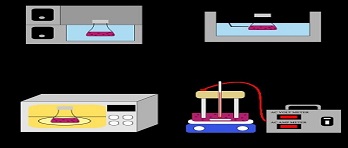
Withida Chantrapornchai
Kasetsart University, Thailand
Title: A study of anthocyanin extraction methods from high anthocyanin purple corn cob hybrid: KPSC 901, and application of the extract powder
Biography
Biography: Withida Chantrapornchai
Abstract
Anthocyanins are compounds extracted from natural origins, and can be used as a natural colorant. The high anthocyanin corn hybrid Kasetsart Purple Corn Single Cross (KPSC) 901 (Zea mays L.) is a new purple corn single cross-hybrid in Thailand. Methodology & Theoretical Orientation: Anthocyanin extraction from KPSC 901 purple corn cob by new extraction methods, including microwave-assisted, ultrasound-assisted and ohmic heating techniques were studied and compared with the conventional heating method (solid : liquid ratio = 1:20) to select the best method for upscaling extraction. The extract was later concentrated and freeze-dried before quantity analysis. Findings: The optimal process for anthocyanin extraction was microwave-assisted extraction which gave a total anthocyanin content (TAC) of 397.1 mg/100 g corn cob powder. The extract powder had TAC and total phenolics content values of 3,446 and 20,915 mg/100 g powder, respectively. Conclusion & Significance: In this research, microwave-assisted extraction is the optimized method, which can help to efï¬ciently extract anthocyanins and phenolic compounds from purple corn cob by using only water as a solvent for producing colorant powder. The powder dissolved in water and had a deep red color so it could be used in functional foods as a natural colorant and/or a source of active ingredients, depending on the concentration used.


